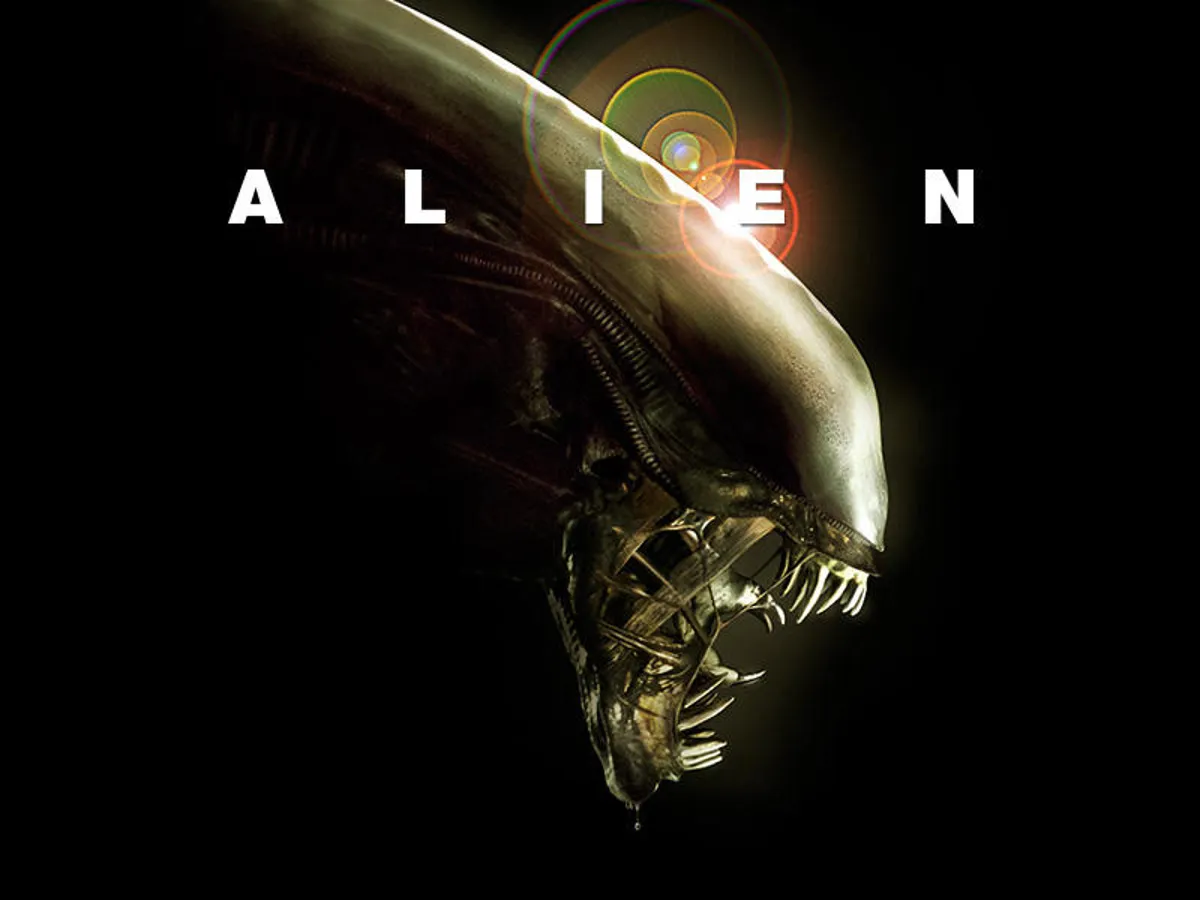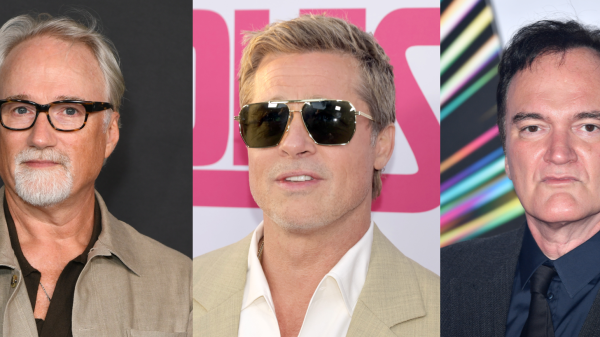In space, no one can hear you scream.
There are some places in the universe that you shouldn’t go alone.
When it comes to iconic, decade-defining science fiction films, the Alien films are likely to come up in the same conversation as 2001: A Space Odyssey, Star Wars, and Blade Runner. The original Alien predates Blade Runner by three years, and was director Ridley Scott’s second feature film after 1977’s The Duellists. Some of Alien’s visual effects were taken from Alejandro Jordorowski’s ill-fated production of Dune, as was screenwriter Dan O’Bannon, who would later be known for 1985’s Return of the Living Dead.
Alien, on paper, is incredibly simple. It has been described as a “haunted house in space”, and functions with the cerebral intelligence and visual effects of 2001 and the suspenseful atmosphere of John Carpenter’s Halloween.
The crew of the commercial tug Nostromo finds themselves awakened from cryosleep before expected, due to a distress call they are legally required to respond to. On the desolate rock of a planet, they discover that the call isn’t a distress signal, rather a warning, and find themselves fighting for their lives against the perfect killing machine.
The film was an unexpected smash-hit, catapulting star Sigourney Weaver into the mainstream (she would later star in 1984’s Ghostbusters) and winning the Academy Award for Best Visual Effects (and a nomination for Best Art Direction). Scott himself has stated that he typically doesn’t like horror films, because it usually boils down to a man in a rubber suit. However, Alien also created the definitive rubber-suit monster in the Xenomorph (although that term wouldn’t be coined until the second entry in the franchise). The Alien was played by the six-foot ten-inch actor Bolaji Badejo in his only credited role.
Many members of the cast would go on to find success in other films; John Hurt (Kane) would go on to earn an Oscar nomination for The Elephant Man and appear in the Harry Potter films; Ian Holm (Ash) would appear as Bilbo Baggins in The Lord of the Rings and The Hobbit trilogies (amongst other things); Harry Dean Stanton (Brett) would appear in John Carpenter’s Escape from New York and Christine, Wim Wenders’ Paris, Texas, Martin Scorsese’s The Last Temptation of Christ, and Frank Darabont’s The Green Mile; and not to mention Weaver, who plays warrant officer Ellen Ripley.
In short, Alien is a cinema classic, a cultural icon, and the first film to place Ridley Scott amongst the world’s most esteemed filmmakers.
In 1984, a young man named James Cameron unleashed a film called The Terminator starring an actor named Arnold Swarzchenegger. It was a sleeper hit, the first produced by Gale Ann Hurd in one of her many collaborations with Cameron. It was in 1985 that (as legend has it) Cameron entered the office, laid a script down on the table and walked out.
That script was simply titled “Aliens”.
Aliens picks up “right after” the ending of the first film, with Ripley drifting through space in a small pod. She is picked up by the Colonial Marines, who inform her that her time in stasis was a little bit longer than she thought. The Marines are on their way to investigate a colony in the process of being terraformed, that ceased communications due to some unknown reason. Fortunately for the Marines, they have a resident expert with them… Ripley.
The production of Aliens was troubled, to say the least. It was filmed almost entirely at Pinewood Studios in England, where Cameron and the American cast toiled frequently with the British crew. The film went over budget and the shoot was finished mere hours before it was supposed to have finished.
However, Cameron fought tooth and nail to complete the film, despite it only being his second true film after The Terminator (his first was Piranha ll, which he had a terrible time making, was fired and eventually disowned the film). Even through the multitude of tribulations, Aliens was released to rave reviews from all parties, with many critics placing it alongside The Empire Strikes Back and The Godfather Part ll as one of the greatest sequels of all time.
A part of this is the cast, which has quite a few memorable characters. Michael Beihn (who appeared in The Terminator as Kyle Reese) appears as Corporal Hicks, a fan favorite Alien franchise character; Carrie Henn plays Newt, the traumatized young survivor (in her final acting role before she left the business); the late great Bill Paxton (the only man to be killed by a Terminator, an Alien, and a Predator onscreen) as Private Hudson; Jenette Goldstien as Private Vasquez, another fan favorite; and Lance Henriksen as Bishop, the resident android. Weaver returned as Ripley, and her performance was one of the most praised aspects of the film. She would earn a nomination for the Academy Award for Best Actress. She didn’t win, but it was the first time anyone had been nominated in that category for a sci-fi or action film. It did take home the Oscars for Best Visual Effects and Best Sound Editing, while being nominated for another four.
While Alien explored the ideas of rape and pregnancy, Aliens explores the theme of motherhood. This is represented through Ripley’s care of Newt throughout the film, and then later the massive Queen alien.
The massive success of Aliens certainly warranted a follow-up. The only question was, who would do it? The popularity of the first two films only increased with time, and to follow-up Aliens narratively is a very difficult task. So for six years scripts were passed around, rewritten, and many were scrapped. Eventually, the rewritten draft by Walter Hill and David Giler was accepted by the studio. One catch: the script wasn’t finished.
Alien3 was rushed into production, with director David Fincher (who would go on to direct Se7en, Fight Club, and The Social Network, to name a few) at the helm. Unfortunately, Alien3 was to Fincher as Piranha ll was to James Cameron, as the experience was miserable (as said by Fincher) and he eventually disowned the film.
The third Alien film was not the smash-hit that its predecessors were. Critics and audiences didn’t bite as hard as they did on the others, and many retrospective reviews call it the worst of the franchise.
However, the home video releases in the early 2000s included the “Assembly Cut”, which reinstates over 30 minutes of cut footage and fills in several holes in the plot. The novelization by Alan Dean Foster (who wrote the novelizations of the first two films) follows the Assembly Cut as well.
By the time the 90s hit, cinemagoers had witnessed Predator (1987), RoboCop (1987), The Terminator (1984) and Total Recall (1990). Such films had comic lines that were very successful, one of which was the Alien vs Predator series. An infatuation with pitting the two franchises together had proven successful in print, so naturally studios scrambled to make a film adaptation. After the fourth Alien film, Alien: Resurrection (1997), failed to reignite interest with audiences, there came Alien vs Predator (2004) and Aliens vs Predator: Requiem (2007), both directed by Paul W.S. Anderson, director of the Resident Evil films. While the first entry made good box-office, neither were well-received by critics or fans. After Requiem, it would be five years until Ridley Scott returned to the franchise with Prometheus, a pseudo-prequel to the original Alien.
Prometheus (2012) documented the ill-fated journey of the USS Prometheus, and their discovery of the Engineers, an extinct alien race who were said to have created humanity. One of the immediate things about Prometheus and its follow-up, Alien: Covenant (2017), is that they aren’t horror or action films in the ways that past films were. They certainly retain horror elements, but are moreso Scott’s exploration of creation and God. Prometheus is possibly the most divisive film in the franchise, as it was pretty much universally acclaimed for its fantastic cinematography and visual effects, but the story direction way it tied into the Alien films split the fandom in half, with many championing the film and just as many denouncing it. Covenant had a similar response, but was another box-office disappointment. Both films were directed by Scott and feature Michael Fassbender as the androids David 8 and Walter One.
By the year 2024, the Alien franchise has expanded far beyond just films. The media franchise includes many comics, board games, RPGS, video games (including 2014’s fantastic Alien: Isolation, which celebrates its tenth anniversary this year) and a whole host of documentaries. A new film, Alien: Romulus, was released last week and was directed by Fede Alvarez, who worked on Evil Dead (2013) and Don’t Breathe (2016).
For 45 years, Alien has stuck with us as audience members. Its contributions to its respective genres and cinema as a whole will never be forgotten. It spawned one of cinema’s most enduring franchises and served as an offramp for three of the most prolific directors of the past 50 years, so no, man, it’s not game over.









